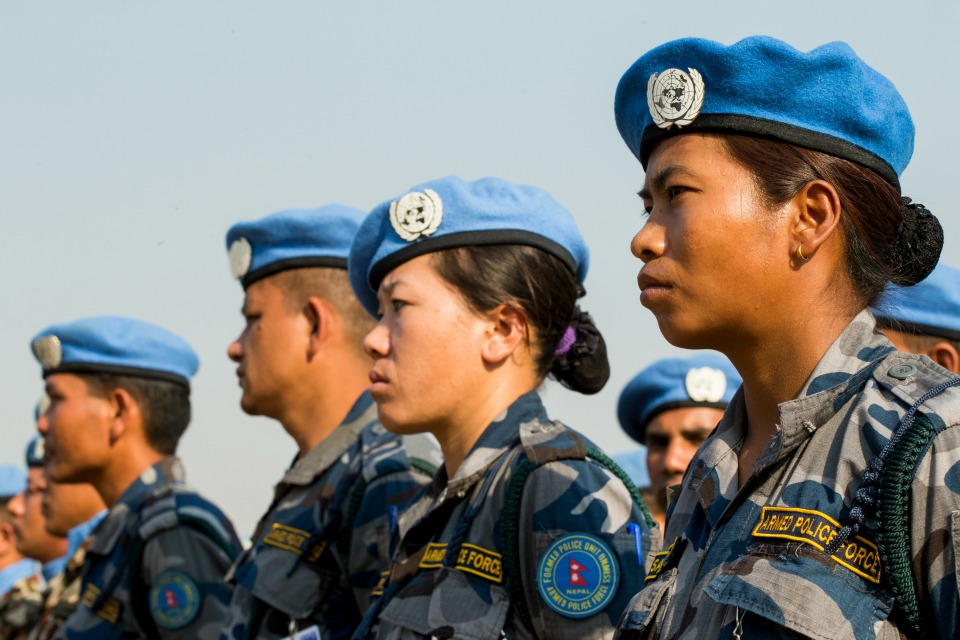"Together we can, and must, make UN Peace Operations the best that they can be."
Statement by Ambassador Matthew Rycroft of the UK Mission to the UN at the General Assembly Debate on the High-Level Independent Panel on Peace Operations

Mr President,
The UK is committed to supporting the UN Peace Operations architecture. I hope we can all work together to continuously improve the UN’s ability to deliver in this crucial field.
The demand for effective UN Peace Operations has never been greater.
That’s why the UK welcomed the Secretary General’s announcement last year that he had appointed an independent panel to conduct a comprehensive review into UN Peace Operations.
This has been an immensely valuable exercise. We commend the independent Panel’s report and welcome the Secretary General’s response. We must take the opportunity to now push ahead with the vital reforms outlined.
Some of the recommendations in the report may increase the UN Peacekeeping Budget. We are prepared to pay more for better peacekeeping, but we must avoid duplication, we must streamline processes and sharpen mandates. Peace operations must be efficient and effective.
The UK has three priorities for reform and we want to see rapid action on each of them:
First, better protection of civilians. We need more transparency and accountability where missions have failed to protect civilians, so that we can learn from our mistakes and ensure missions have the capabilities and the training to deliver.
We support the Secretary-General’s intentions to initiate regular reporting to the Security Council on risks posed to civilians, and on any capability gaps that might impede the protection of civilians.
We support full disclosure to the Council of protection of civilian failures. And we support the appointment of protection of civilian advisers in missions.
We were pleased to see the prominence given to Women, Peace and Security, especially as we look forward to tomorrow’s High-level Review. We must ensure women are part of political and protection solutions. This is not about sectioning off women’s issues and placing them in a separate category when managing and addressing conflict; this is about an integrated approach.
We endorse the Secretary-General’s call for all senior UN staff to have specific job performance indicators on gender and women, peace and security, against which they should be held accountable.
We also encourage the UN Secretariat to establish immediate response teams to gather and preserve evidence of sexual exploitation and abuse for use in investigations, which should be completed within six months.
On this note, we fully support the Secretary-General’s position on recent allegations of sexual exploitation and abuse. States must take action. Zero tolerance means zero tolerance.
Second, better planning of missions and more targeted and focused mandating: the UK is committed to supporting the UN Secretariat in improving the way missions are planned and deployed. We are encouraged by the Secretary-General’s plans to establish a new strategic analysis and planning capacity. This unit will draw together expertise across the Secretariat and offer the strategic planning focal point that UN Peace Operations need. We must get better at understanding the situation on the ground. We must be clear on what we want, and can achieve, before we start mandating new missions. We must heed the advice that peace operations are led from the field, and that policies and processes support this approach rather than work against it.
Our third priority is a more strategic approach to force generation. The UK supports calls for a more flexible approach to deployments, embracing offers of specific technical assistance from Member States. As my Prime Minister, David Cameron, announced at the Leaders’ Peacekeeping Summit, the UK will make additional military deployments to the UN support operation in Somalia and the UN mission in South Sudan. These pledges are part of the UK’s committment to playing a greater role in supporting UN Peace Operations.
We also fully endorse the creation of DPKO’s Strategic force generation cell. The UK has provided donor support to the cell and would encourage other member states to do likewise. Following the many generous pledges we heard last week, there is much work for the new cell to do to ensure that there is a smooth transition from pledges to deployments.
Mr President,
These are our top three priorities: better protection of civilians; better planning of missions and more targeted and focused mandating; and a more strategic approach to force generation.
I would like to finish by noting the great work done by the more than 100,000 peacekeepers and mission staff across the world and honouring the sacrifices that many have made.Together we can, and must, make UN Peace Operations the best that they can be. The UK is ready and waiting to play our part.